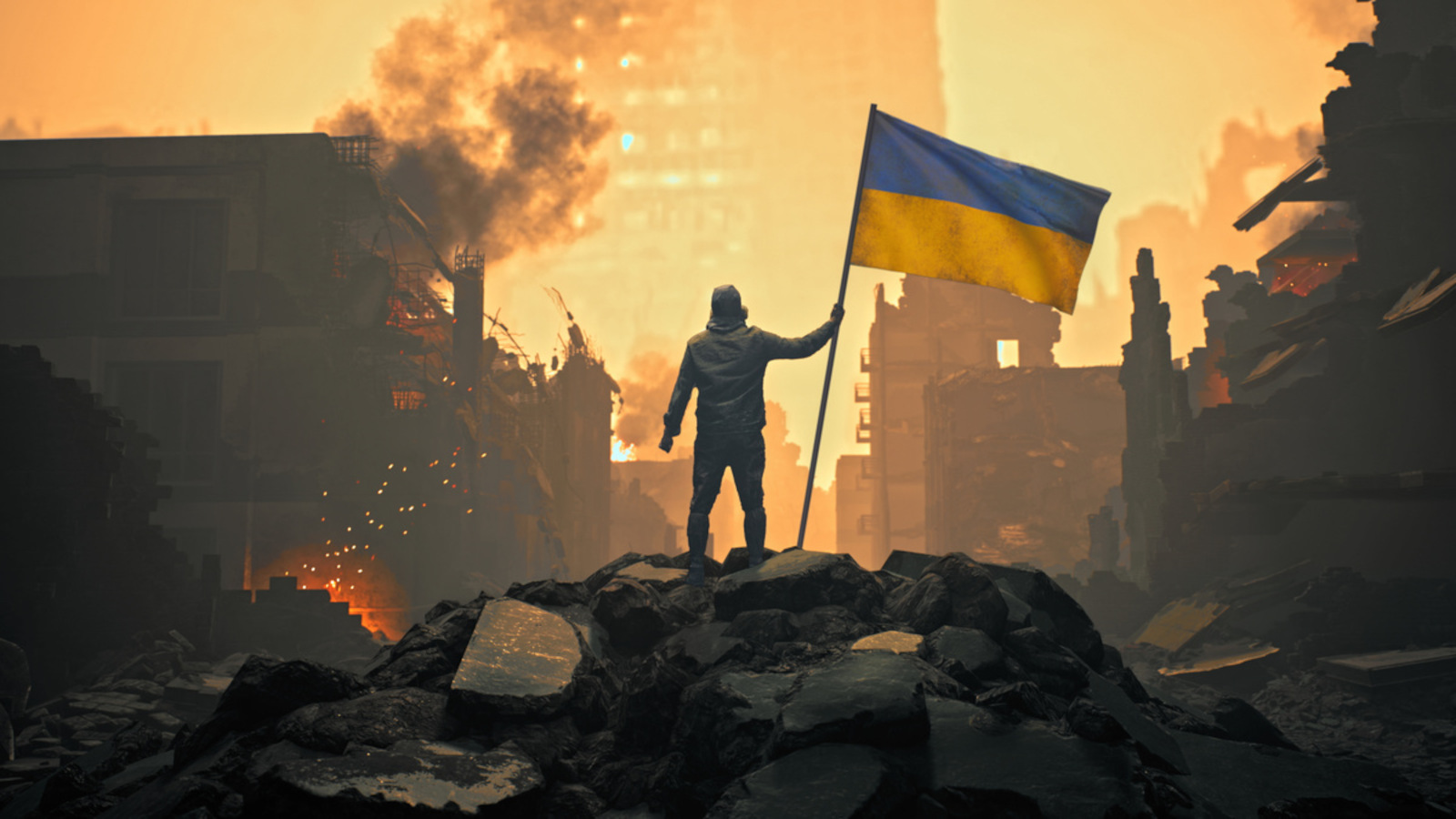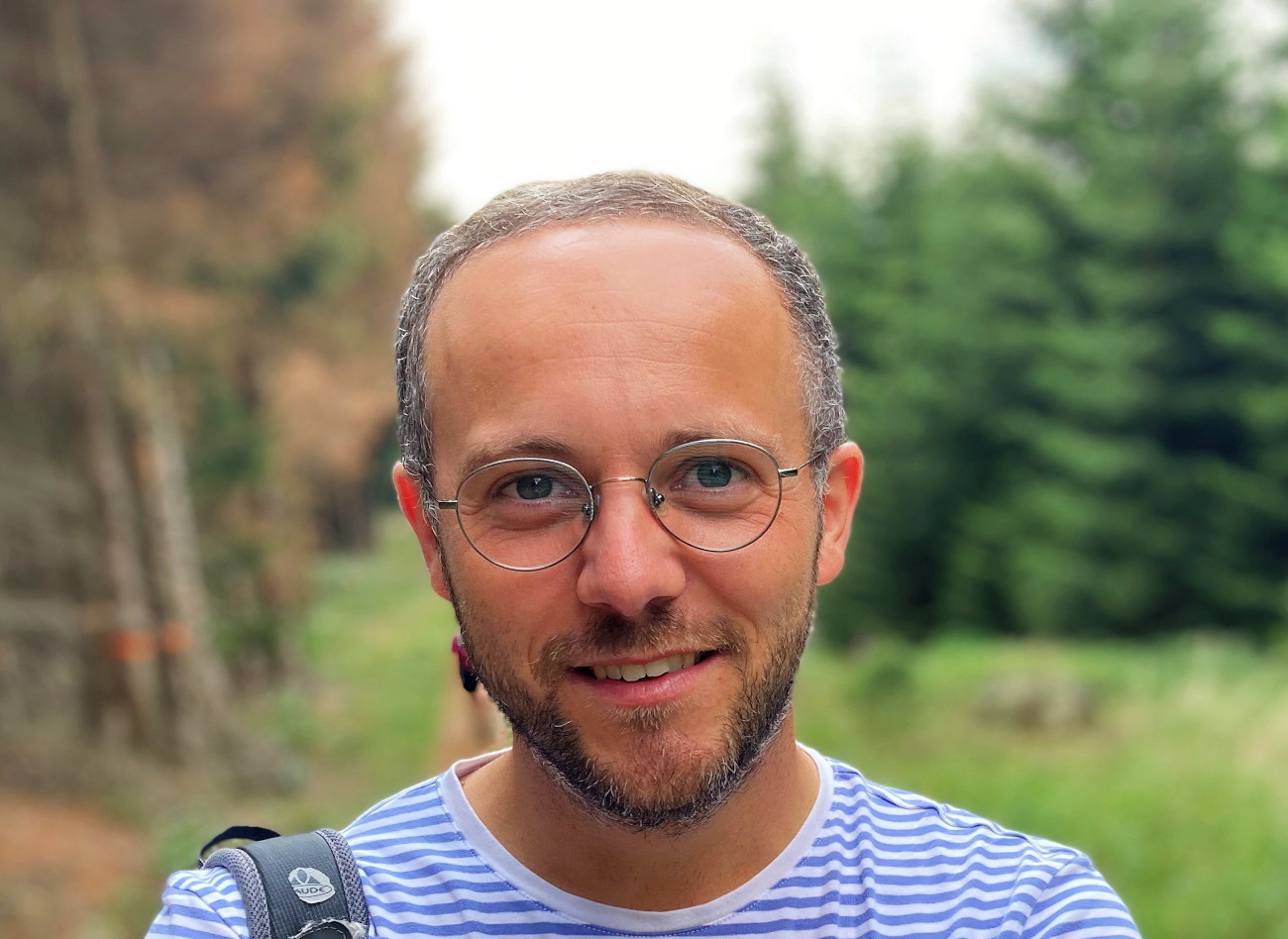
© Clever Stock / Adobe Stock
Explain This, Professor: Where Do the Ukrainian People Get Their Strength?
What, who, why? In the “Explain This, Professor” series, researchers explain the background to current world events. This time: Dr. Eduard Klein on the unwavering Ukrainian will.
Bombs have been falling on Ukrainian homes, hospitals, factories, and power plants for months now. The people live in constant fear. Despite that, their will to win seems unbroken. Even a winter without enough electricity, water, and heat doesn’t appear to make them falter. Where are the Ukrainians finding this strength? Dr. Eduard Klein from the Research Centre for East European Studies (Forschungsstelle Osteuropa – FSO) at the University of Bremen explains the Ukrainian perseverance.
Anyone who wants to understand the Ukrainian resistance should first take a look back in time. “What Putin is alluding to with his expression ‘brother people’ is clear: large parts of Ukraine and Russia are united by a centuries-long shared history,” says Eduard Klein, an Eastern European researcher. But this is a losing argument because, on closer inspection, it does not apply to the entire territory of Ukraine – parts of the west, for example, belonged to Austria-Hungary for a long time, and other parts of today’s Ukraine belonged to the Polish-Lithuanian state. “Putin’s claim to the whole of Ukraine for historical reasons is therefore unjustified. The Ukrainians are very aware of this,” explains Klein.
“Brothers” Move Away from Each Other
According to Klein, most Ukrainians do not feel emotionally attached to Russia either. “When the Soviet Union collapsed in 1991, more than 90 percent of Ukrainians voted for independence. They were very proud to finally have their own state,” explains Klein. Since then, the so-called brothers have moved further and further away from each other. This was expressed in the “Orange Revolution” of 2004 and the “Euromaidan” of 2013/2014, a result of which has seen Ukraine forging links with the West and seeking EU and NATO membership. Why? Klein lists several reasons. “Well, people have eyes. They can see that the people of Europe are doing better economically than people in Russia. They are also seeing the continually declining situation in Donbas, which has been under Russian rule for eight years.” Corruption has increased sharply there, the economy is struggling, and human rights and freedom of the press are being massively curtailed.
Atrocities of Bucha Bolster Fighting Spirit
The brutal behavior of the Russian occupiers also brings back painful memories to many Ukrainians. Many would still remember their grandparents’ stories: during the tsarist period, the Ukrainian language was banned. In the early 1930s, Stalin starved millions of Ukrainians in the “Holodomor,” which the German government has now classified as genocide. According to Klein, all of this is deeply engrained in the collective memory. Nevertheless: “At the beginning of the invasion in February 2022, many Ukrainians were still willing to negotiate,” says Klein. This changed suddenly, however, when the pictures from Bucha and other places became public. The brutal crimes committed by the Russian military against the civilian population made it clear to all Ukrainians what kind of repressive regime they will face if the Russians win their war of aggression.

© Eduard Klein
FSO a Place of Refuge
Since the outbreak of the war, Klein has once again intensified his contacts with Ukraine. He has spent decades researching the conditions in Eastern Europe, studied in Russia, and has been in Ukraine several times to conduct research, including at Kharkiv University. “To think that the buildings I was in are now destroyed and that the people I met there are living in constant fear is just terrible,” says Klein. Many researchers at the FSO feel the same way. “The Russian invasion turned everything upside down here,” says Klein of the stressful weeks in the spring. To offer immediate aid, the FSO created special scholarships to help academics fleeing Ukraine as well as threatened colleagues in Russia and Belarus. Almost 20 people have now come to Bremen, some with their families. The FSO employees helped people get to Bremen and took care of apartments and other day-to-day matters for them. In the meantime, the situation has calmed down and work with the “newcomers” at the FSO is also going well. There is, however, a problem: “We rely on international stays, field research, visiting archives, and interaction with the local people. Due to the Russian war of aggression, we are currently unable to enter Ukraine or Russia, with which scientific relations are on hold.” This poses enormous challenges for the work of the FSO researchers. “We haven’t yet found any good solutions for how to deal with this going forward,” says the researcher. Putin’s war of aggression has thus greatly changed the working environment and everyday working life of Klein and his colleagues.
Further Information:
Research Centre for East European Studies website
Ukraine analyses (joint project of the FSO with other research institutes)
War against Ukraine: How You Can Help
Staff at the Research Centre for East European Studies are currently collecting donations for their project partners in Kyiv. They want to support them with transformers, emergency generators, and Internet access.
Make a donation and become a “Friend of the Research Centre” with the keyword “Ukraine”:
IBAN: DE12 8306 5408 0004 8513 82
BIC: GENODEF1SLR
Deutsche Skatbank
A donation receipt can be issued on request. Please send your name and address to fso@uni-bremen.de.